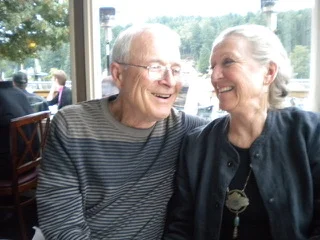LIFE WITH A CAPITAL 'L' Chapter THREE, section One
It matters little to the overall shape of things in the world that I know barnacles stand on their heads and eat with their feet. But I can tell you that it makes a great difference to me when I stoop at ocean’s edge and see them feed. What a delightful moment. Pleasure is immediate when I watch their fern-like feet search the shallow water for food. I feel like God has let me in on a private joke. I am glad I learned about barnacles.
ZAMBAKARI - CHAPTER ELEVEN
Arketa stood her ground. For the first time in hours she was out of the lorry, her feet firmly planted on muddy ground somewhere between the villages of Zamou and Bangasu. Before her was a wide, swift river and at its edge was a raft—of sorts—a rattle of logs bound together and barely wider than the lorry itself. The attached motor hummed like helicopter blades sputtering under water. Raft workers raced around yelling to one another, hoisting and hauling ropes thick as their bare thighs and heavy as sin. Arketa studied the situation as she was told to climb back into the lorry.
A few years ago, as I was finishing up my seminary degree, I served on a ministerial search committee. One evening over dinner, the committee interviewed a fine man. True, his opinions about women’s service to the church differed drastically from mine, but heck, I was idealistic and optimistic. I had seen many people, including pastors, move from narrow ideas about women to adopt kinder, more tolerant views. Surely, it could be done again.
What should she do? It had never entered Arketa’s mind that she might leave M’boki—except to return to Sudan. But a return was clearly out of the question since for ten years, life in M’boki had become only more settled as news from home was only news of violence and unsettledness. Consequently, when a United Nations representative posted in M’boki first suggested that Arketa’s family emigrate, she dismissed the idea.










